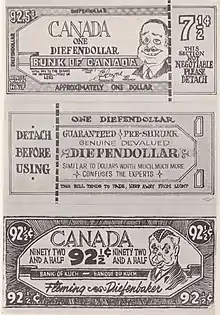Portal:Conservatism
| Main page | Showcase | Project |
Introduction
Conservatism is a cultural, social, and political philosophy that seeks to promote and to preserve traditional institutions, practices, and values. The central tenets of conservatism may vary in relation to the culture and civilization in which it appears. In Western culture, depending on the particular nation, conservatives seek to promote a range of social institutions such as the nuclear family, organized religion, the military, property rights, and monarchy. Conservatives tend to favor institutions and practices that guarantee stability and evolved gradually. Adherents of conservatism often oppose certain aspects of modernity (for example mass culture and secularism) and seek a return to traditional values, though different groups of conservatives may choose different traditional values to preserve.
The first established use of the term in a political context originated in 1818 with François-René de Chateaubriand during the period of Bourbon Restoration that sought to roll back the policies of the French Revolution. Historically associated with right-wing politics, the term has since been used to describe a wide range of views. There is no single set of policies regarded as conservative because the meaning of conservatism depends on what is considered traditional in a given place and time. Conservative thought has varied considerably as it has adapted itself to existing traditions and national cultures. For example, some conservatives advocate for greater economic intervention, while others advocate for a more laissez faire free-market economic system. Thus, conservatives from different parts of the world—each upholding their respective traditions—may disagree on a wide range of issues. Edmund Burke, an 18th-century politician who opposed the French Revolution but supported the American Revolution, is credited as one of the main theorists of conservatism in the 1790s. (Full article...)
Selected article
.jpg.webp)
In 1988, Bush launched a successful campaign to succeed Reagan as president, defeating Democratic opponent Michael Dukakis. Foreign policy drove the Bush presidency; military operations were conducted in Panama and the Persian Gulf at a time of world change; the Berlin Wall fell in 1989 and the Soviet Union dissolved two years later. In the wake of economic concerns, he lost the 1992 presidential election to Democrat Bill Clinton.
Selected quote
The real division is not between conservatives and revolutionaries but between authoritarians and libertarians.
— George Orwell, in a letter to Malcolm Muggeridge (4 December 1948)
Selected image

An economic downturn was beginning in Canada by 1958. By mid-1961, differences in monetary policy led to open conflict with Bank of Canada Governor Coyne, who adhered to a tight money policy. Negotiations between Minister of Finance Fleming and Coyne for the latter's resignation broke down, with the governor making the dispute public, and John Diefenbaker sought to dismiss Coyne by legislation. Once he had the opportunity to testify (denied him in the Commons), Coyne resigned, keeping his increased pension, and the government was extensively criticised in the press. By the time Diefenbaker called an election for June 18, 1962, the party had been damaged by loss of support in Quebec and in urban areas as voters grew disillusioned with Diefenbaker and the Tories. The PC campaign was hurt when the Bank of Canada was forced to devalue the Canadian dollar to 92½ US cents; it had previously hovered in the range from 95 cents to par with the United States dollar. Privately printed satirical "Diefenbucks" (pictured) swept the country.
Credit: Wehwalt
Did you know...
- ... that California began celebrating Ronald Reagan Day on February 6, 2011, which would have been Reagan's 100th birthday?
- ...that the 2008 Duncan Hunter presidential campaign was endorsed by both Chuck Yeager and Ann Coulter?
- ... that scholars estimate that it takes two or three generations for a tradition to emerge?
Selected anniversaries in May
- 1979 – Margaret Thatcher becomes the first female Prime Minister of the United Kingdom.
- 1940 – the Norway Debate in the British House of Commons begins, and leads to the replacement of Prime Minister Neville Chamberlain with Winston Churchill three days later.
- 1988 – Section 28 is enacted in Great Britain with the effect of prohibiting the promotion of homosexuality by local authorities.
Topics
Associated Wikimedia
The following Wikimedia Foundation sister projects provide more on this subject:
-
 Commons
Commons
Free media repository -
 Wikibooks
Wikibooks
Free textbooks and manuals -
 Wikidata
Wikidata
Free knowledge base -
 Wikinews
Wikinews
Free-content news -
 Wikiquote
Wikiquote
Collection of quotations -
 Wikisource
Wikisource
Free-content library -
 Wikiversity
Wikiversity
Free learning tools -
 Wiktionary
Wiktionary
Dictionary and thesaurus